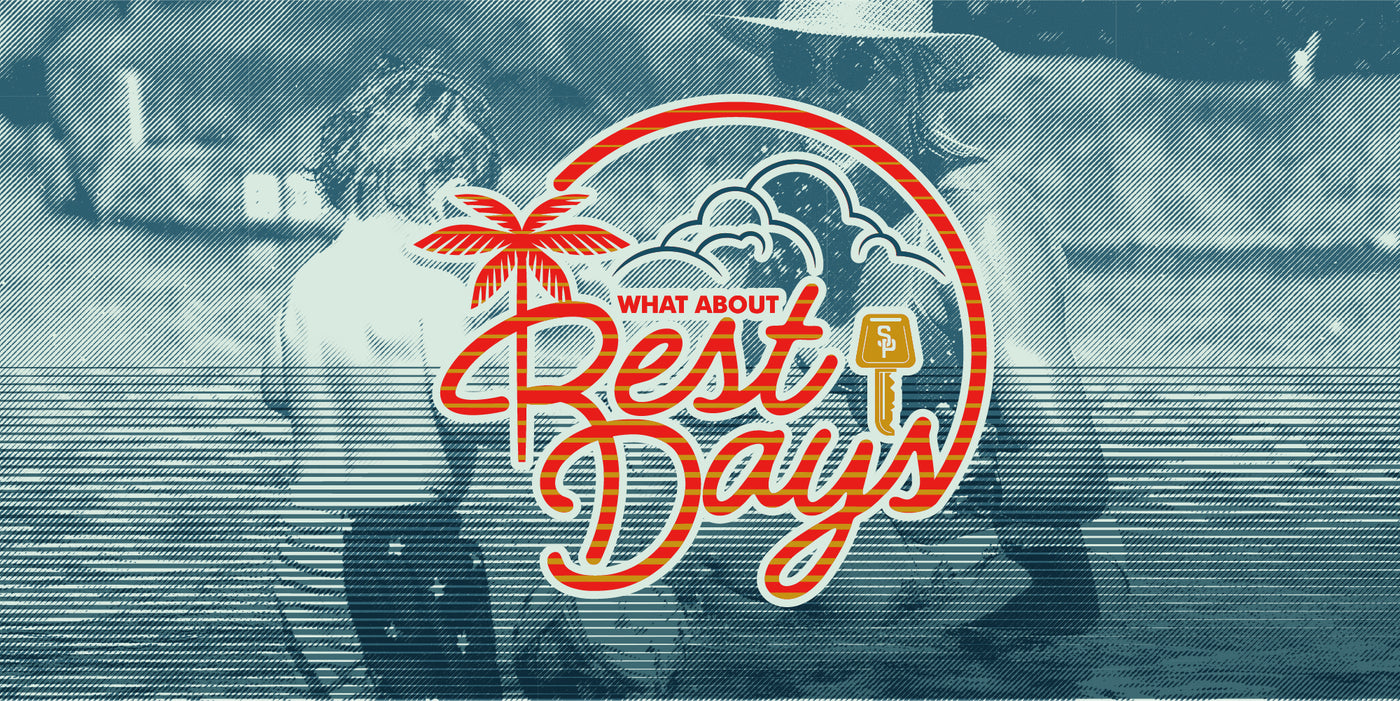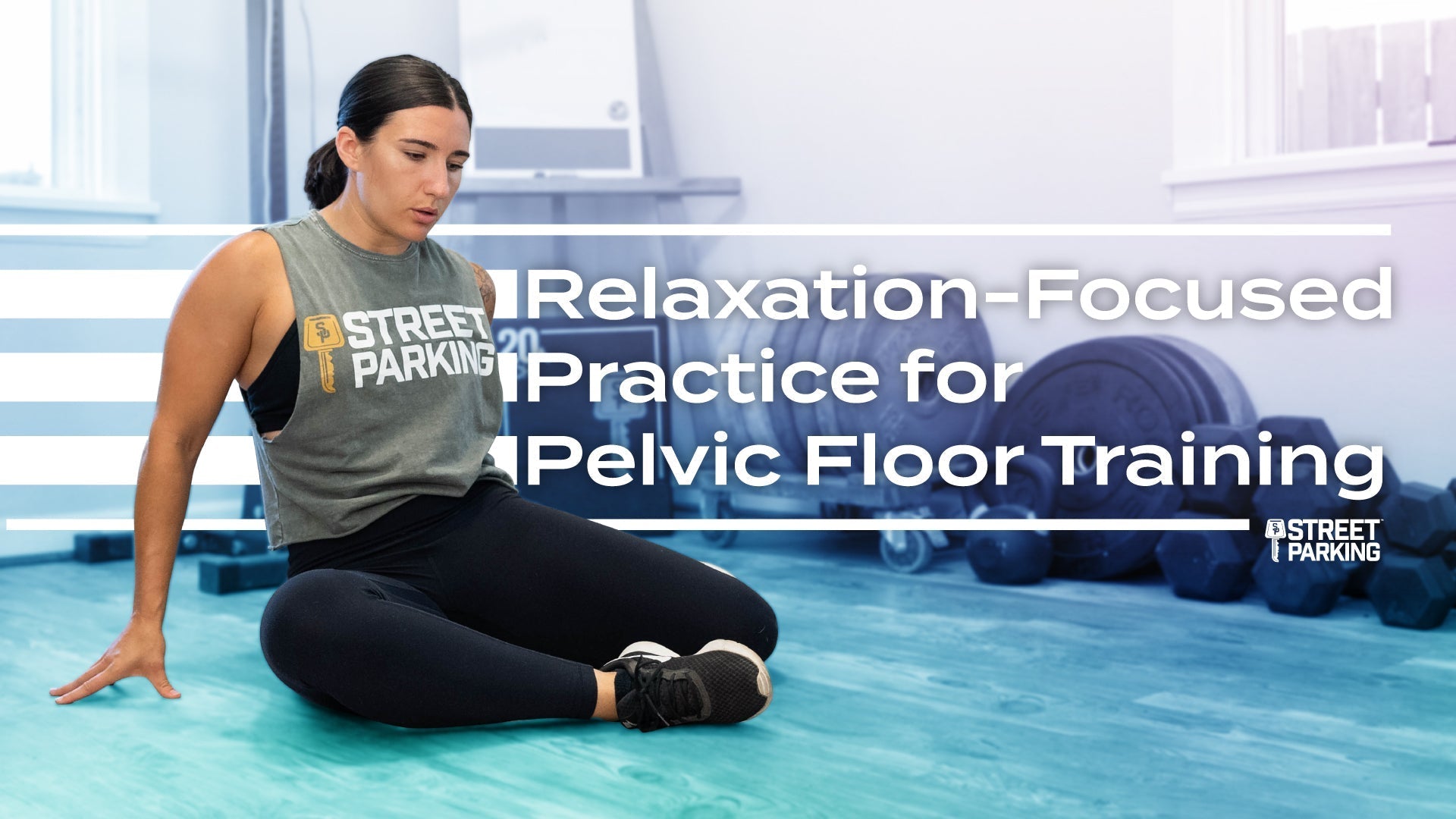
Proper rest is not only CRITICAL for achieving optimal results - but is also extremely important if you want to establish a lifetime of consistency!
When it comes to REST we have seen it all. From the outright refusal to take a rest day - usually stemming from a belief that it will slow down progress - to the belief that there should be some complex algorithm built into your smart watch that tells you exactly when to take it easy.
We have established that consistency is crucial for lasting results, but how does proper and consistent REST play into that? And how do you know if you are resting too much, too little, or just the right amount?
Within the Street Parking program we encourage 1-3 REST DAYS per week. To some, that might seem counterproductive to staying consistent, but we’d argue it’s the exact opposite.
Giving your body some well-deserved “time off” is great - and necessary - for seeing results, letting your tissues heal, preventing injury (or burn out), and helping to keep the “desire” alive! (You know what they say, absence makes the heart grow fonder!!)
So how do you figure out how many rest days you need?
How many rest days YOU need totally depends on how many days you work out, how many of those workouts were done with intensity, and what your other recovery habits are like.
Ask yourself the following questions to help guide you toward how much rest is appropriate for you:
- What’s your nutrition like? Are you consistently fueling properly and eating whole, unprocessed foods? Are you eating enough to support your training and your goals?
- How is your sleep? Do you have a sleep routine? Do you maximize the number of hours you can be in bed?
- What’s your stress level like? Do you have healthy strategies to cope with stress?
If one or more of the above has a LOT of room for improvement, you’ll likely need more rest days. If they’re on point, the opposite is true.
When thinking about rest days, don’t just assume you need more rest when things are not feeling quite right. Take a look at your nutrition, sleep habits, and stress as well. Those all play big roles in your recovery – but more on that later.
For now, let’s take a look at your actual workouts.
We will outline four different stages of consistency and sample schedules which you can use as a guide. In each stage, we’ve laid out what your movement each week should ideally consist of in terms ofmoving days, work out days, intensity days and rest days.
THE DIFFERENT TYPES OF “DAYS”
MOVING DAYS: you’re doing SOMETHING but not an actual work out. This could be a long walk, a hike, a casual row or swim, a bike ride with a friend, a Maintenance session, moving for leisure and fun.
WORKOUT DAYS: you’re doing any of the Street Parking Programs (A, B, C), SHIFT, or Extra Programs such as Suns Out Guns Out, Butts and Guts, Oly or Power programming, but NOT focusing on intensity, maxing out, or having the best score. Days you take it a little more easy , don't start the clock, or go lighter ON PURPOSE. Focus on form and movement. On these days it’s ok to skip starting the clock or tracking your rounds.
INTENSITY DAYS: you’re going to push for the best performance and score that you can, push to hit those goal times or goal rounds. Intensity doesn’t always mean to go faster. If you’re doing Oly or Power, this might mean that you actually push intensity by goingheavier, which is completely different than just keeping the weight moderate and working technique.
REST DAYS: DO NOTHING. Get out of the gym. A total break physically and psychologically.
REST SHOULD MAXIMIZE YOUR INTENSITY AND VOLUME
Before we get into the four stages of consistency and rest days, it’s important to make a few key notes on the stages for you to consider.
Remember: we won’t stay in one stage forever.We all go through periods where we can handle more workouts per week, or more intensity, and there are also seasons of life due to work, illness, pregnancy, etc. where we may need to scale back. This is LIFE and normal.
How will you know if you have picked the right stage, if you're doing it correctly?
- You’re probably resting enough IF: you’re going into your intensity workouts and your scores are getting better onVault retests and/or Diagnostics, or you’re able to use more weight and you’re not wrecked for days afterwards
- You’re probably NOT resting enough IF: you often feel sluggish, your scores aren’t getting better, the weight feels heavier than normal, or you’re not improving.You probably need to look at the other recovery factors, too. Remember, the answer is not necessarily always more rest days, it could be found in more quality sleep, better nutrition, and so on.
A few reminders about INTENSITY:
-
If you didn’t read/listen to Unlocked #2 “Intensity > Volume” we highly recommend you do so before trying to plan your next week of workouts and rest days.(link to that write up)
-
If you feel like you can do more on your intensity day, right after the workout, you did it wrong.
These people do what we call “jogging.” They do the work out, but they never push intensity (this is fine if you’re brand new and in Stage 1!) These people think they need to work out MORE, but really they need to work out HARDER. What is going to allow them to work out harder is if they rest one or two days a week so they take on a workout feeling fully recovered, ready to push that really uncomfortable pace, knowing that at most they are going to do three days of fitness in a row and then take another rest day.
If you try to push intensity seven days a week, you’re going to end up jogging. Up to four intensity days a week is all anybody needs!
- Pressure for intensity every single session will lead to LESS CONSISTENCY!
Why? First, it’s too much pressure! If every day you think you have to go all out at 100% to get a good work out, then when there are days you know you that you just can’t - because maybe your baby kept waking up all night, or you just got off shift work, LIFE HAPPENS - you’re going to think to yourself, “well since I can’t go 100%, I just can’t work out today.” Or you'll attempt it and completely wreck yourself in the process, opening up the door for more common illness or injuries.
THE STAGES OF CONSISTENCY / REST RECOMMENDATIONS
STAGE 1: Someone who is new to working out, recently injured or recovering from being seriously ill, postpartum mothers, etc.

We’re not expecting you to go to 7 days of movement right off the bat. It’s not realistic and it’s not sustainable. If you’re going from never working out to doing highly scaled workouts three times a week, and then moving two other days, that’s already going to be a significant load added to your body.
This stage should last 4-8 weeks.
STAGE 2: Someone who’s been consistent with Stage 1 movement for 4-8 weeks.

For example here, you could do Program A for two days and really push it for your intensity day, then Suns Out Guns Out and Butts and Guts for your remaining two workout days. Or you could do Program A or B on one of those other two "workout" days, but just don’t start the clock.
Your Moving Day could include go for a long walk with a friend and a bike ride, or doing some SP Maintenance.
On the “Rest day” - do nothing!
STAGE 3: This is the ideal place for everyone to live! It’s realistic, it’s sustainable, it won’t wreck you, and you’ll see great results.

This is basically the same as the Stage 2 breakdown, but with added Intensity Days. Again the "Moving Days" can still be workouts, but intentionally should not be "going for it" levels of intensity.
STAGE 4: The people who love working out so much that they constantly want to push it and are at a period in their life where they want/can push more because they have the time to do it.

This ONLY works and you’ll only see better results in this stage if your recovery practices, sleep and nutrition are dialed in, and if your overall life stressors are low. This stage gives you ONE more work out day, but still keeping the Intensity Days at 4 or less. We just DON'T recommend more than that for almost anyone.
We know there are people who want to workout 7 days a week, or to workout 6 days a week with 1 day of “active recovery.” We are not big fans of this approach and here’s why:
As a final thought, here are some alternative rest suggestions for days when you’re physically and/or mentally exhausted but want to move to keep your consistency going.
- Do a SHIFT workout! These are not easier but less taxing as far as loading goes. Do this but move slower than you typically would, as weights are lighter and you may be capable of getting a super high number of rounds.
- Sessions from the Suns Out Guns Out, Butts and Guts, Gymnastics EMOMs or No Equipment Extra Programs. These will make you sore but not exhaust you.
- Don’t start the clock!
- Don’t keep track of your score.
- Do some Street Parking Maintenance videos.
- Practice something! Do a pull up program, work on some handstand holds, practice your double unders.


